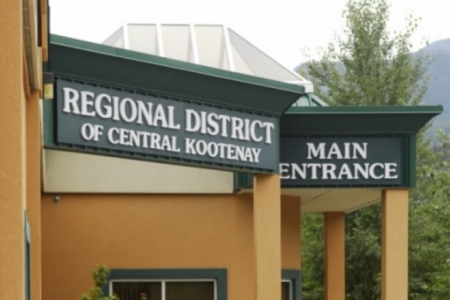SHADES OF GREEN: The Keystone XL protests and the Occupy Movement
The protest against the 2,763 km Keystone XL pipeline from Alberta’s tar sands to America’s Gulf States’ oil refineries are driven by a deeper concern than risk to Nebraska’s Sand Hills region and its underlying Ogallala aquifer. The same applies to The worldwide Occupy movement, too, is motivated by a deeper concern than unregulated banking practices and the growing disparity between rich and poor.
This deeper concern could be interpreted as criticism of the industrial and financial institutions that comprise the economic engines of our modern age. But even this is not deep enough. Both protests, it seems, have their deepest common cause in a loss of confidence in the system itself, a foreboding created by repeated warnings of profound environmental transformations that could traumatize our present civilization.
Granted, not everyone articulates this foreboding. But decades of multiple environmental warnings have been eroding confidence in a system that seems more interested in its own success than the ecological havoc it is causing. The cumulative effect of these warnings is a growing sense of anxiety and pessimism. Some people respond by entrenching their faith in the system and doing what they have always done; others are challenging the system by demanding change.
One of the forces behind the Keystone XL pipeline protests, for example, is an organization called 350.org. It contends that the continual burning of oil – especially the “dirty” oil of the Alberta tar sands – is environmental folly. Developing the tar sands simply entrenches an indefinite commitment to oil and prevents the necessary shift toward clean, renewable energies. 350.org believes that our reliance on fossil fuels is untenable so it is “defusing the carbon bomb” – 44 percent of greenhouse gas emissions come from coal, 36 percent from oil and 20 percent from natural gas. Atmospheric carbon dioxide has now reached 393 parts per million from a historical level of 280 ppm, climate stability can only be assured at 350 ppm, and emissions are on a course for 450 ppm, a concentration that could reach the feared “tipping point” beyond which our planet’s ecology would shift into uncontrollable warming.
Science supports this prediction. The International Energy Agency (IEA) reports that by 2015, given our present global emission rates, we will have lost 90 percent of our safety margin for avoiding this tipping point. By 2017, without radical reductions in greenhouse gases, we will have reached this point. So, for 350.org, stopping the Keystone XL pipeline is literally a life-or-death issue. The next struggle will be to stop the Northern Gateway pipeline, a project by transnational corporations that intends to export Alberta’s tar sands oil from BC’s West Coast to Asia.
The Occupy movement is responding differently to the same foreboding. It implicates transnational corporations in a wide range of social, financial and environmental wrongs. While these corporations have generated considerable global wealth, they have done so by exploiting the disadvantaged at the expense of everyone else – the earnings of the world’s middle class have remained almost unchanged since the 1970s. Meanwhile, income of the wealthiest 1 percent has increased manyfold – the average 2009 income for each CEO of the 500 largest corporations was $8 million.
The Occupy movement also blames financial corporations for the Great Recession of 2008, the consequences of which are still echoing around the planet. The trillions of dollars borrowed by countries to shore up their banks and avert a financial collapse became an excessive burden on precarious economies already stressed by debt.
The other wrong that motivates the Occupy movement is the undue political and economic influence held by transnational corporations. Indeed, this influence is deemed so powerful that most nations equate economic health with corporate health. Meanwhile, these corporations show no allegiance to any particular nation – they invest where the constraints are lowest and the profits are highest. An analysis by the Swiss Federal Institute of Technology of the interlocking relationships of the world’s 43,000 transnational corporations revealed that a core of 1,318 controlled 80 percent of the world’s operating revenue. Within this core, 147 controlled 40 percent of all wealth (New Scientist, www.bit.ly/onkFR2). So these corporations own at least this share of the record 30.6 billion tonnes of greenhouse gases emitted in 2010.
Meanwhile, transnational corporate investments continue in oil, gas and coal, helped by global government subsidies in 2010 of $470 billion. To the many billions already invested in the Alberta tar sands, an estimated $253 billion will be spent over the next 25 years. The $7 billion to build the Keystone XL pipeline is an extension of this investment. So, too, is the $5.5 billion for the 1,172 km Northern Gateway proposal. Then add the multiple LNG plants proposed for coastal BC. The Sacred Headwaters of the Skeena, Nass and Stikine Rivers in central BC, described by the renowned ethnobiologist Wade Davis as a world wilderness treasure, will be trashed by the planned gas, oil and mining industrial development there. Corporate salmon farms operate with the same intrusive aggression. Indeed, few places on Earth can escape corporate capital and its hunger to exploit resources and feed its market.
A growing number of critics now recognize this trend as pathological and dangerous – and others are beginning to recognize their complicity. This is the awareness that is motivating the Keystone XL protesters. The global Occupy movement is motivated by a similar awareness. Its action was inspired by a single question posed in Vancouver’s Adbusters magazine: “What is our one demand?” Both protest groups would probably agree that a complicated answer is coalescing into a few simple words: “Give us back our countries, our democracies and our planet.”
Damien Gillis is a Vancouver-based documentary filmmaker with a focus on environmental and social justice issues – especially relating to water, energy, and saving Canada’s wild salmon. This article originally appeared in the Common Sense Canadian.



























Comments